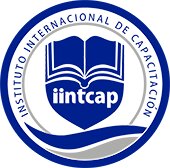Best Water Law Lawyers in Santiago de los Caballeros
Share your needs with us, get contacted by law firms.
Free. Takes 2 min.
List of the best lawyers in Santiago de los Caballeros, Dominican Republic
About Water Law in Santiago de los Caballeros, Dominican Republic
Water law in Santiago de los Caballeros, and throughout the Dominican Republic, focuses on the ownership, use, management, and protection of water resources. This area of law includes regulations over the use of rivers, lakes, groundwater, and public supply systems. The main goal is to guarantee access to water, ensure its equitable distribution, maintain water quality, and preserve the environment. In Santiago de los Caballeros, a city that relies on important rivers and aquifers, effective water law implementation is vital for both residents and businesses.
Why You May Need a Lawyer
Legal assistance in water law becomes necessary in many situations in Santiago de los Caballeros. You might need a lawyer if you are:
- Facing disputes over water rights or access with neighbors, businesses, or government entities
- Seeking permits for drilling wells, diverting water, or developing properties near water sources
- Dealing with fines or sanctions for alleged illegal water use, contamination, or non-compliance with regulations
- Pursuing compensation for damages caused by water-related activities, like flooding or pollution
- Negotiating water supply contracts with local authorities or water companies
- Seeking guidance on how regulations affect your farm, industry, or real estate development
Local Laws Overview
Several key laws and regulations govern water use in Santiago de los Caballeros:
- General Water Law No. 5852: The main statute regulating national water resources, covering ownership, use priorities, water bodies classifications, and sanctions.
- Law No. 64-00 on Environment and Natural Resources: Establishes the principles of environmental protection, including water resources, pollution control, and sustainable development.
- INAPA and CORAASAN Regulations: The Instituto Nacional de Aguas Potables y Alcantarillados (INAPA) and the Corporación del Acueducto y Alcantarillado de Santiago (CORAASAN) oversee public water supply and sanitation services, issuing permits and guidelines for water use and connections in the municipality.
- Municipal Ordinances: Local authorities may set up regulations on water usage, drainage, and connections to municipal networks.
Water resources in the Dominican Republic are public domain, meaning individuals and entities need to seek licenses or permits for certain uses, especially when those uses impact public supply, the environment, or the rights of others.
Frequently Asked Questions
What is considered public water in Santiago de los Caballeros?
Public water includes rivers, streams, lakes, springs, underground aquifers, and any other natural water sources not privately owned or developed. Most bodies of water are public domain and regulated by government authorities.
Can I drill a well on my property?
Drilling a well typically requires a permit from the relevant governmental agency, such as INAPA or CORAASAN. You may need to provide technical studies and prove that your use will not harm nearby users or the environment.
Who is responsible for providing public water and sewage services in Santiago de los Caballeros?
The Corporación del Acueducto y Alcantarillado de Santiago (CORAASAN) is in charge of managing the public water supply and sewage systems in the Santiago area.
What should I do if my business is accused of contaminating a river?
You should seek immediate legal advice. Environmental law violations can result in fines, criminal liability, and costly remediation orders. A lawyer can help you respond to notifications, defend you in administrative or court proceedings, and guide you on compliance.
How are water rights prioritized?
Domestic use and human consumption are given top priority, followed by agricultural, industrial, and recreational uses, according to the General Water Law and related regulations.
Can I be fined for wasting water?
Yes, wasting water or using it excessively during rationing periods may result in warnings, fines, or service suspension, especially if such use violates local ordinances or conservation policies.
Do I need permission to divert or dam a river for irrigation?
Yes, any modification of natural waterways, including diversion or damming, requires government authorization and environmental impact studies. Unauthorized actions can lead to legal penalties.
Who resolves disputes over water rights?
Disputes are typically handled by administrative bodies like INAPA or CORAASAN, and can be taken to the local courts if necessary. Mediation or conciliation may also be encouraged before litigation.
How do agricultural users get access to irrigation water?
Farmers must apply for water use rights or licenses from the relevant regulatory agency. They may need to join local irrigation associations and follow usage quotas or schedules.
What can I do if I suspect my water supply is contaminated?
Report your concerns to CORAASAN or INAPA immediately. They are required to investigate and take corrective action as needed. If health or property damage occurs, consult a lawyer about your rights and possible remedies.
Additional Resources
Anyone with questions about water law in Santiago de los Caballeros can consult the following bodies and resources:
- CORAASAN (Corporación del Acueducto y Alcantarillado de Santiago): Manages municipal water and sanitation services and provides information on regulations and procedures.
- INAPA (Instituto Nacional de Aguas Potables y Alcantarillados): National authority for water supply and sanitation.
- Ministry of Environment and Natural Resources: Oversees environmental regulations and enforcement, including water protection.
- Local Bar Association: Can refer you to lawyers specializing in water and environmental law in Santiago de los Caballeros.
- Environmental NGOs: Organizations such as Fundación Saltadero or Fundación Loma Quita Espuela often offer guidance and support on community water issues.
Next Steps
If you need legal assistance with a water law matter in Santiago de los Caballeros, consider taking these steps:
- Identify the exact nature of your water law problem - disputes, permits, fines, or contamination issues.
- Gather all relevant documents and information, such as property deeds, previous permits, official notifications, or evidence of harm.
- Contact the local water or environmental authorities for basic information and procedural guidance.
- Reach out to a licensed attorney experienced in water or environmental law. The local Bar Association can help locate qualified professionals.
- Schedule a consultation to review your situation, understand your rights, and discuss possible solutions, whether administrative, negotiation, or litigation.
- Follow your lawyer's advice on responding to official actions, filing paperwork, or participating in mediation or court proceedings.
Legal matters related to water use and rights can be complex. Seeking early legal advice helps protect your interests and ensures compliance with all local laws and regulations.
Lawzana helps you find the best lawyers and law firms in Santiago de los Caballeros through a curated and pre-screened list of qualified legal professionals. Our platform offers rankings and detailed profiles of attorneys and law firms, allowing you to compare based on practice areas, including Water Law, experience, and client feedback.
Each profile includes a description of the firm's areas of practice, client reviews, team members and partners, year of establishment, spoken languages, office locations, contact information, social media presence, and any published articles or resources. Most firms on our platform speak English and are experienced in both local and international legal matters.
Get a quote from top-rated law firms in Santiago de los Caballeros, Dominican Republic — quickly, securely, and without unnecessary hassle.
Disclaimer:
The information provided on this page is for general informational purposes only and does not constitute legal advice. While we strive to ensure the accuracy and relevance of the content, legal information may change over time, and interpretations of the law can vary. You should always consult with a qualified legal professional for advice specific to your situation.
We disclaim all liability for actions taken or not taken based on the content of this page. If you believe any information is incorrect or outdated, please contact us, and we will review and update it where appropriate.












